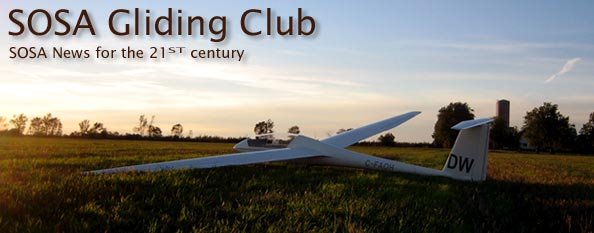Our goal should be to fly the maximum number of flights possible each day so that all members are given the opportunity to fly on a given day. There have been many days where we have launched 100 flights. We need to look at our field management on these days and adapt this success to every day operations.
This year we need to focus on four items to meet this goal.
- Gliders will be placed on the runway in two lines at all times*.
- Duty Instructors need to be pro-active in assigning student and Instructor pairings.
- Field Managers need to manage the field – not run ropes.
- The VIP role will change from that of flying all the Intros to managing the Intro/pilot pairing.
What does each of these points mean and how should they be implemented?
- Gliders placed in two lines
- Instead of placing gliders in a single line-astern row, gliders will be placed in two rows. This allows the Field Manager flexibility in launching, since there are two gliders at the front of the grid. For example if a single and two-place are both at the front and the Citabria is the next tow plane, the single should be launched first.
- If a glider at the front of one row is not ready this also gives the Field Manager the ability to launch the other row, thus minimizing wait time and manpower to move the first glider from the runway.
- * Both Runways 10 and 28 are two narrow for this type two-plane grid, so we will continue to use a single row on these runways. Typically, when using 10/28 the operation is fairly quiet.
- Duty Instructors role in field management
- The Field Manager job is the most important job on the flight line, yet it is typically held by our least experienced members since our more senior members move into the Duty Instructor role.
- Duty Instructors must mentor the Field Managers to pass along knowledge.
- The Field Manager does not know the students, whereas most instructors do so the Duty Instructors should be pro-actively working with the students and Instructors on the line to pair them up well before the flight. In an ideal world when there are lots of instructors on the line this allows pre-flight briefings to take place while waiting for a glider. Instead of at the front of the line with the tow plane waiting.
- Field Managers need to manage the field
- Field Managers must be aware of the big picture – this is not possible if they are running ropes and hooking up gliders. Delegate this task to other members who are waiting for a flight.
- To improve efficiency, the Field Manager needs to focus on the gliders that are next to launch. By ensuring pilots in the second row are ready to launch, the first row will always be ready when the tow plane arrives. Depending on the number of tow planes in service, the Field Manager may need to focus on the second and third row in the grid.
- The VIP role
- On busy days, it is not feasible for the VIP to fly all the Intro flights, this is unsafe in terms of the fatigue the pilot will experience.
- During the peak period, the VIP should focus on managing the Intro list and available pilots. By doing this we will again remove some load from the Field Managers and allow them to concentrate on launching gliders.
- In the morning before the flight line is busy, and again at the end of the day, the VIP will likely be required to fly some of the Intros, but when things get busy they must assume a management role.
- In recognition that the VIP is above and beyond the normal Flight line duties, the VIP's will have 1 less normal duty.
To implement these changes will take some effort on the part of all members and it will take some time to adapt to the new system, but the resulting improvements on the flight line will positively affect everyone’s opportunity to fly, and that is why we are all at SOSA.!
